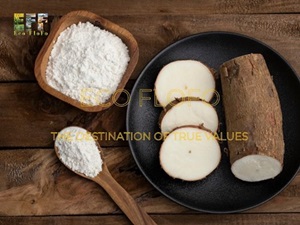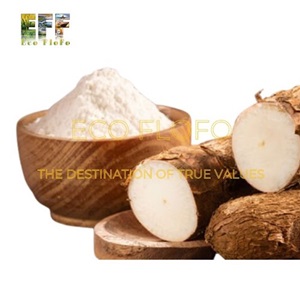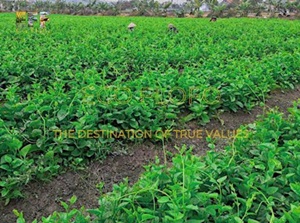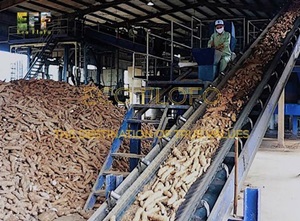I. Overview of the Vietnamese tapioca starch exporting state today:
Tapioca starch is judged as one of Vietnams important agricultural products with the large exports. The demand of Vietnamese tapioca starch in the international market is significantly increasing, especially the US, Europe and China. The main reason leading to the development of this item is thanks to the expansion of the food processing industry (raw material for monosodium glutamate, gummy candy, and thickener), the industrial sector (raw material for adhesives in paper production), the pharmaceutical industry (raw material for tablets and capsules due to its good solubility), and the agricultural sector (raw material for organic fertilizers and animal feed).
II. Eco FloFo directly implements cooperatives with farmers and co-produces with tapioca starch manufaturing an processing factories:
The general standards of Vietnames Tapioca Starch are:
- Origin: Vietnam
- Starch (%, minimum): 85.0%
- Whiteness (%, minimum): 90.0%
- Moisture (%, maximum): 13.0%
- PH: 5 - 7
- Foreign Matters (sand/silica): 0.2%
- Viscosity (B.U) : over 700 B.U
- SO2: 0 P.P.M
- Packaging: In white PP & PE bags of 25 – 50kgs or as requests
III. Scale of Eco FloFo’s tapioca starch manufacturing and processing factories f in Tay Ninh, Gia Lai and Nghe An:
1. Typical features:
- Each factory’s manufacturing and processing area: 1.8 - 2.3 ha
- Each factory’s output warehouse: 1 - 1.7 ha
- Each factory’s annual output: 40,000 - 70,000 tons
- Eco FloFo’s tapioca starch manufacturing and processing factories have full export certificates in accordance with the regulations of regions in Asia, Europe, Americas and Africa
- Eco FloFo constantly aims to enhance our reputation through investing in the technology-applied production line
- Eco FloFo cooperates with farmers to develop the growing area to ensure Vietnamese tapioca starchs productivity and quality
2. Some pictures of Eco FloFo’s tapioca growing areas and tapioca starch manufacturing factories:
Tapioca Growing Area
Tapioca Starch Manufacturing Factory
IV. Eco FloFo’s important orientations on expanding the Vietnamese tapioca starch importing market in Asia, Europe, Americas and Africa:
1. Taking Advantage Of E-Commerce Platforms In The Import-Export Sector:
Eco FloFo will expand the approach scale to the global market through some trade-related e-commerce platforms such as Alibaba, Global Sources, Made-in-China and so on with the aim of filtering reputable tapioca starch importing units in foreign regions. This not only makes the enterprise proactive in proposing payment methods to limit risks for international transactions, but also establishes more cooperative relationships with many Logistics units in importing countries to solve issues related to customs clearance in time.
2. Complying With Import and Export Standards Of Each Nation:
Depending on the standards prescribed for food quality and safety of each importing country, Eco FloFo’s experienced staff will be proactive to find out all necessary trade information between Vietnam and another nation and then consult our target customers how to prepare suitable procedures to successfully perform customs clearance of Vietnamese tapioca starch at the port of discharge, involving the phases of planting, harvesting, manufacturing, packaging, inspecting and delivering to the designated area based on the Incoterms 2020.
3. Building The Green & Sustainable Tapioca Growing Area Business Model:
Eco FloFo advocates applying advanced technology to optimize production and processing processes at the factory to minimize waste and increase operational efficiency. In particular, we also focus on providing training programs on farming techniques, resource management and environmental protection for farmers.
4. Developing The Global Logistics Network:
Eco FloFo’s staff are regularly trained in domestic and international transportation processes, warehouse management and timely updates on the continuous innovation of international laws related to trade and Logistics. We also advocate expanding cooperation with foreign logistics agents to take advantage of local expertise and minimize legal risks abroad.






